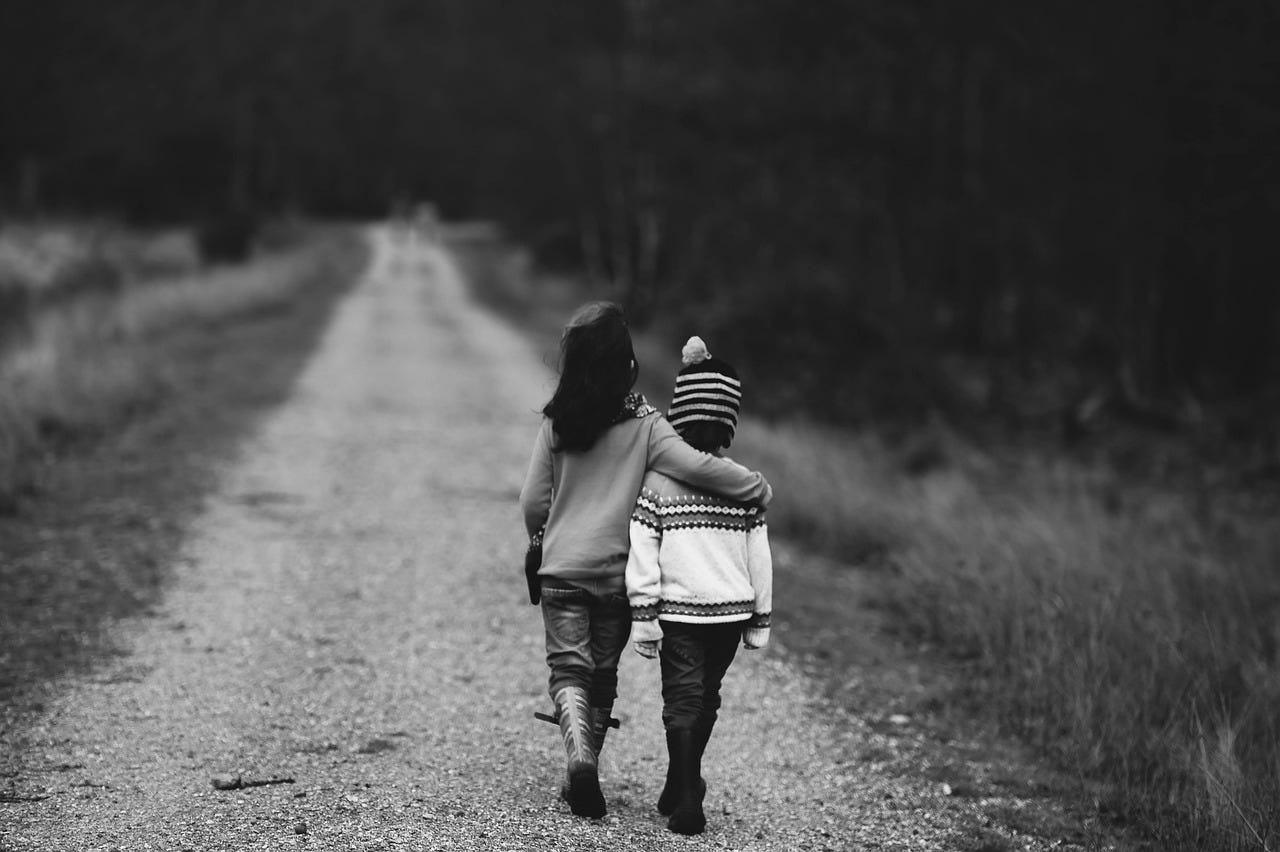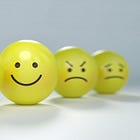I.
In 2017, US surgeon general Vivek Murthy wrote ‘Work and the Loneliness Epidemic’ in the Harvard Business Review. He writes:
Loneliness is a growing health epidemic. We live in the most technologically connected age in the history of civilization, yet rates of loneliness have doubled since the 1980s.
The ‘loneliness epidemic’ has since begun living its own life in media coverage. When I see a term like that being endlessly repeated on all kinds of media, I worry that it’s marketing. To make it more complicated, there are three types of loneliness.
Emotional loneliness: the absence of a partner or close friend with whom you can share your experiences, fears, anxieties, etc.
Social loneliness: the lack of a wider social network of friends, neighbors, or colleagues.
Existential loneliness: a universal aspect of the human condition that expresses the separateness of the person from others.
The inimitable Sylvia Plath describes existential loneliness well:
Yes, there is joy, fulfillment, and companionship, but the loneliness of the soul in its appalling self-consciousness is horrible and overpowering.
But that existential despair is not what we’re looking at here and it’s also not the type of loneliness most popular media talks about. The first two types - emotional and social loneliness - are not always easy to untangle, so when you survey people to estimate the prevalence of loneliness, it’s tricky to measure what you think you’re measuring.
Anyway, whether or not we want to classify it as an epidemic, if we take a look at a large 2022 review that covers surveys from 113 countries, we can grab our very broad brush and say that, globally, 10–35% of people report frequently feeling lonely.
Think about that the next time you’re walking down a busy street.
Whether or not we call this an epidemic is, honestly, not what actually matters. What does matter is that a lot of people feel lonely way too frequently.
This is very sad, not only because most of us find meaning and joy in interpersonal relationships*, but also because loneliness is a risk factor for chronic diseases and premature mortality. It is linked to mental health disorders like depression, anxiety, and post-traumatic stress disorder, as well as conditions like obesity, hypertension, and insulin resistance. A 2015 meta-analysis suggests that loneliness ups mortality risk by a staggering 26%!
(*of course, relationships can be detrimental too. Cut the toxic people from your life sooner rather than later!)
II.
What is it about loneliness that kills, though?
Evidence from twin studies suggests that loneliness is a moderately heritable trait, and a recent analysis of large-scale genome-wide association study data identified a genetic overlap between risk factors for loneliness, cardiovascular disease, and severe mental disorders. The involved genes are important for the brain, immune system, and metabolism, which suggests that genetic risk for loneliness may increase the risk for both cardiovascular disease and mental illness. (Of course, this doesn’t mean that there are genes for loneliness, simply that some gene variants might make you more prone to feel lonely and/or affect the extent of loneliness’s negative effects.)
However, genetics is only a small part of the puzzle. Other risk factors for loneliness are: being male, being subjected to chronic work or social stress, and/or suffering from physical health symptoms. Vice versa, being married (or in a stable long-term relationship), having children, having higher levels of education, and having a larger number of siblings can offer protection against loneliness. Agewise, loneliness is most common in adolescents and the elderly.
But if we want to get to the how of loneliness’s detrimental health effects, we’re going to have to dig a little deeper.
It begins with seeing loneliness as a major and chronic stressor that disrupts hormonal, immune, and metabolic processes. If you want more particulars: chronic loneliness activates stress pathways such as the hypothalamic-pituitary-adrenal (HPA) and sympathetic-adrenal-medullary (SAM) axes, which can both screw up your immune system and metabolism.
The overactive HPA axis, for example, results in higher cortisol awakening responses and flattened diurnal cortisol rhythms — AKA physiological stress, all the time. Such persistently high cortisol levels are associated with consequences such as high blood sugar, increased vascular resistance (messing with blood pressure and blood flow), redistribution of body fat to the viscera (the ‘bad news’ deep belly fat), and accelerated biological aging.
Stress is the killer and feeling lonely is incredibly, relentlessly stressful.
III.
In a vicious cycle, feelings of loneliness result in a chronic ‘hypervigilant’ state (HPA firing away), and that, in turn, leads to increased anxiety, altered stress responsiveness, and - oh, sad irony - social withdrawal. Lonely people are also more likely to remember and pay attention to negative social interactions. These negative cognitive biases in lonely individuals then push them deeper into social isolation.
Enter all kinds of strategies to numb the dull ache of persistent loneliness. Whether it is booze, other drugs, or video games, chronic social loneliness may lead to higher rates of addiction and substance abuse. But that’s a tricky statement because suffering from an addiction can also make you lonelier. Edgar Allen Poe can relate to this, in his trademark gloom:
I have absolutely no pleasure in the stimulants in which I sometimes so madly indulge. It has not been in the pursuit of pleasure that I have periled life and reputation and reason. It has been the desperate attempt to escape from torturing memories, from a sense of insupportable loneliness and a dread of some strange impending doom.
So, how do we break that loneliness-reinforcing cycle?
Again, the answer is far from straightforward, and what works for one person will not necessarily work for someone else. A recent perspective that looks at different strands of research outlines two individual and two societal ways ahead.
Individual
Building mental resilience: improving self-awareness and emotional regulation through practices such as relaxation techniques and journaling. (Any journalers reading? Does it work for you? Let me know in the comments.) Cognitive strategies like avoiding social comparisons and FOMO can also help. Additionally, experiences that increase oxytocin signaling, such as positive social interactions and even interacting with pets can improve stress resilience. (Maybe I should get a cat…)
Building metabolic resilience: increase the body’s metabolic capabilities through endurance exercise and resistance training. Dietary changes can help make sure that you get plenty of nutrition to support your body’s functioning. This will - obviously - not prevent loneliness but it might help your body cope with the physiological effects (and some types of physical activity could be a way to make new social connections).
Societal
Public policy: develop and support interventions that bolster social connectivity among at-risk groups. For example, increase access to safe and adequately lit parks, bike lanes, public transportation, recreational activities, and - in this online age - high-speed internet access are all ways in which communities can enable physical and digital proximity to facilitate social connection.
Education: Public education campaigns with various institutions and stakeholders might counteract the cognitive biases that prevent people from building social connections. But a one-size-fits-all approach is not the answer, my introvert part feels compelled to note.
All of that is true, but that does not make it any easier to shoulder the heavy burden of loneliness. In our modern world, loneliness is something we try to hide, almost as if we’re ashamed to say: “Hey, I feel lonely and it makes me unhappy and I don’t even know how to start addressing it.”
I see you.
Related thoughts:









I pendulate between loneliness and social overwhelm, I can't seem to find the middle ground. I'm sometimes lonely and feel isolated, so I socialize until it's a bit too much, then I feel overwhelmed and retreat in my own space, only to stay there for a bit too long (comfort? too many solitary hobbies like writing?) and then become lonely again. And the cycle repeats.. :)
Journaling is so powerful for me to regulate my nervous system and emotional state. I write to understand what I feel, to put my thoughts in order and to clear my mind.